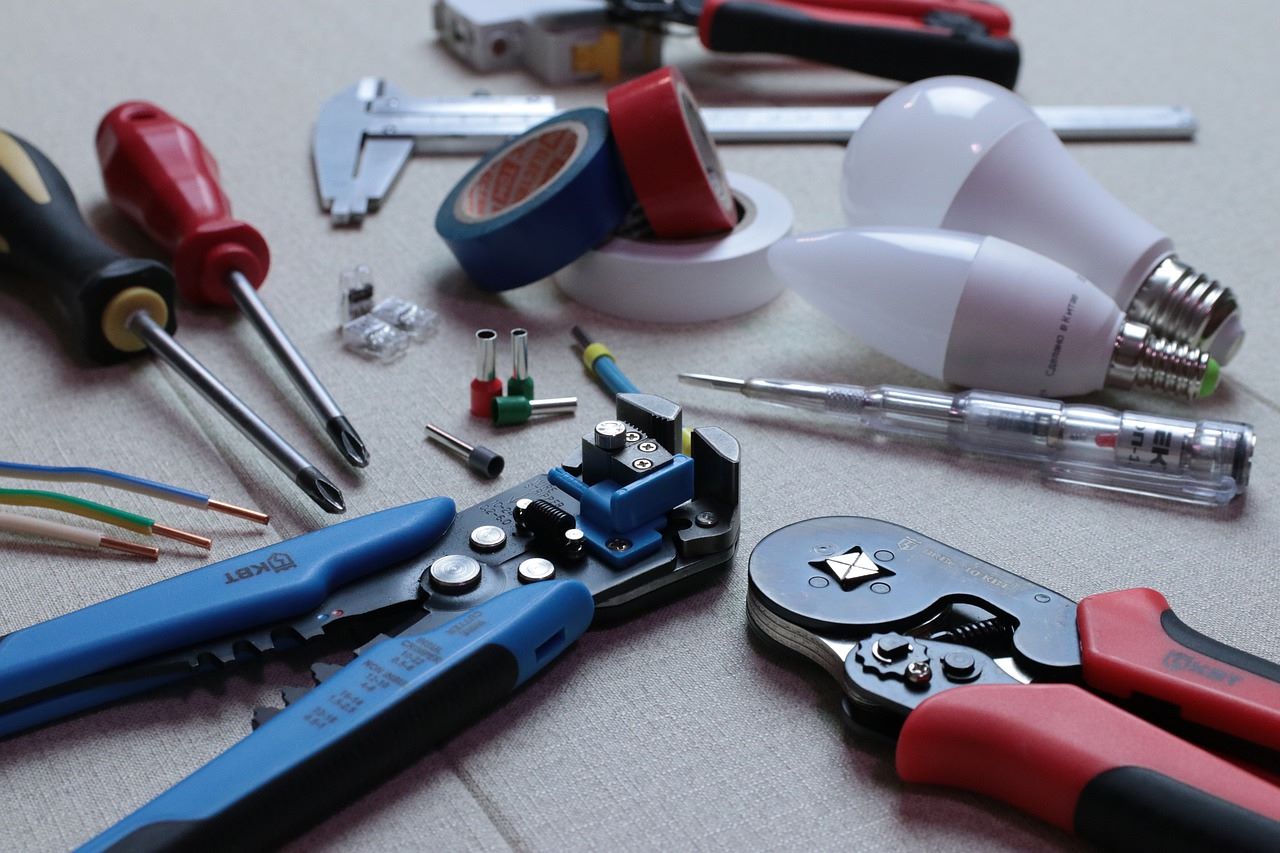9 Key Requirements Needed To Succeed As An Electrician

1. Excellent customer service skills
Customer service is a top skill that can position you for immense success as an electrician. This skill will come in handy whether you own your own electrician company or work for someone else, so keep this in mind. It is essential to note that electrical work involves interacting with customers and working on their site like any other skilled trade. Consequently, the staff at the job site or home inhabitants will see and interact with you very often. As such, it is extremely vital to be respectful of your surroundings, interact with anyone you meet professionally, and conduct your job with excellence in mind. You need to be friendly, polite, honest about work and fees, reliable, patient, and neat on every job. Also, look customers in the eye and shake their hands firmly to leave a good impression on anyone you work for and guarantee a great customer experience.
2. The right tools
Electricians rely on various tools to ensure accuracy, comfort, craftsmanship, and safety. A large toolset is essential because every job you get can require different electrical components, so having the right tools for every possible task is non-negotiable. Consequently, invest in common tools like a level voltage tester, reaming bit, tape measure, screwdriver, plier, electric drill, and flashlight. In addition, purchase quality safety glasses, conduit finders, and fish tape. Also, remember that most of your time on the job will be spent on ladders or atop high platforms. Therefore, you will not have the luxury of climbing up and down to grab the tools as and when you need them since this would be not very productive and possibly dangerous. As such, consider investing in a comfortable electrician tool belt you can wear on the job to keep essential tools within reach.
3. Physical fitness
Many expert electricians agree that anyone eyeing success in this job should factor in its physical nature. Admittedly, you don’t need to be in the best shape of your life to become an electrician. Also, you will not be required to do strenuous work for hours on end. Nevertheless, you should at the very least be active and comfortable doing things like standing for long periods, lifting heavy weights, bending over, and crouching. Additionally, you should be able to go up and down scaffolding, stairs, and offers with ease and squeeze into tight corners and spaces. These tasks don’t sound so challenging on their own, but they can add up when done day in, day out. Therefore, it would help to have the basic fitness required to perform your role for long-term success in this field.
4. Manual dexterity and excellent vision
It is no secret that electrical work is all about precision, so you need a lot of dexterity and great vision to succeed. For instance, working with small tools and objects will require an incredibly steady hand and great hand-eye coordination. In addition, your vision must be excellent; you cannot be color-blind, for instance. Indeed, distinguishing red from blue makes all the difference between a task well done and a tragedy due to the color-coded nature of your work.
5. Electrical installation and safety knowledge
According to the National Fire Protection Association, about 80 electricians die annually at work, and roughly 25 of those deaths occur due to electricity exposure. Electricians are undoubtedly highly trained to spot electrical hazards and reduce the likelihood of being killed on the job. However, they are exposed to electrical hazards more often than several other occupations, so your risk of dying at work is ever-present. Therefore, it is essential to sharpen your electrical installation and safety knowledge to reduce the odds of occupational injuries or death. As a trained electrician, you will undoubtedly be taught how to use power tools, read blueprints, plan and complete electrical installations, and repair fixtures, equipment, and wiring. In addition, you will be taught all electrical safety procedures and rules, as well as how to install cables, tubing, and switching devices. It is essential to revise this knowledge occasionally to remember everything you need to remain safe while working.
6. Decent math skills
Many skilled trades that involve installation, repair, and maintenance require some degree of math proficiency to excel, and electrical work is no exception. You would be working with percentages, fractions, and decimals to calculate loads, convert watts to kilowatts, and figure out things like wiring lengths and room dimensions. In addition, it would help to master Ohm’s law and other electrical principles as well as basic trigonometry. Precise measurements and calculations are crucial for a job well done in this field and to remain safe. However, you don’t need advanced calculus or physics knowledge to succeed as an electrician, just a solid understanding of basic math you likely learned in middle school and high school.
7. Teamwork skills
Collaboration is common in electrical work, so you will rarely work alone as an electrician. For starters, you will have to report to a supervisor or project manager if you work for an employer. Also, you may be tasked with training apprentices even if you attain a senior rank. Furthermore, to complete full projects like a house build, you must collaborate with plumbers, carpenters, painters, and other tradespeople. Therefore, teamwork and getting along with others are vital to succeed in your role. Therefore, you will need to be patient, friendly, and a good communicator.
8. Critical thinking and problem solving
It is not always clear what the issue is or which component is malfunctioning. Also, wiring and circuitry installation can stall and require a change of plans. These scenarios demand critical thinking and problem-solving skills for breakthroughs. Therefore, you will need to logically assess issues, remember and follow the step-by-step procedures you learned in training, all while keeping safety in mind. Your troubleshooting skills must be sharp, so you must perfect the art of running the right tests and other diagnostic functions to identify issues and address them correctly.
9. An apprenticeship
An apprenticeship is paid on-the-job training all aspiring electricians must finish before becoming qualified to handle full electrical work independently. Electrician apprenticeships in America typically last between four and five years. While training under a journeyman electrician’s supervision, you will get paid in your apprenticeship. You will earn about half of what a fully trained electrician makes, although you may get raises as you learn and master new skills. As per the Bureau of Labor Statistics, apprentice electricians must finish at least 144 hours of technical training and 2,000 paid on-the-job training hours in every year of their apprenticeship. You can apply classroom hours from a technical college to your 144 hours, so keep this in mind. Finally, you may be required to sit and pass a licensing exam after finishing your apprenticeship based on the state in which you plan to operate. Therefore, check individual state requirements on the National Electrical Contractors Association (NECA) website to know whether you need to take a licensing exam.




